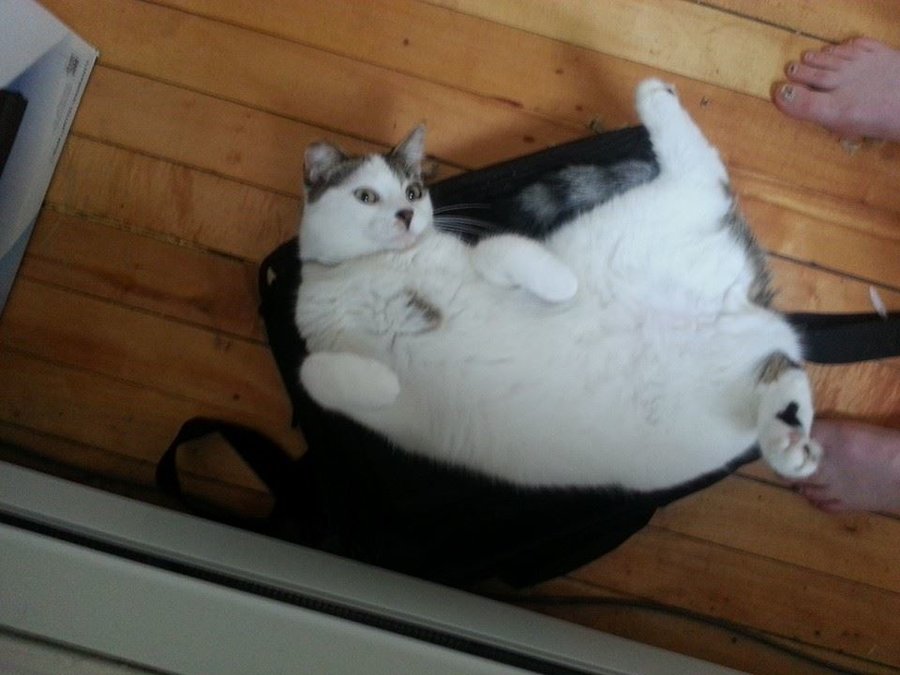Vincent is almost 1 year old. I found him outside dying of hypothermia in January (he was estimated 5 months old then) and is now happy living with me and my boyfriend inside my apartment. I've had him on Blue Buffalo kitten food (can and dry) and I just decided to start him on big boy food so I got him indoor Blue Buffalo. I thought about it for a while, he is pretty active and playful. He likes to chase us around the apartment and is good at playing by himself while we are busy. However, he is a semi-cobby body style (short legs, sturdy core, blunt tail) and with thick thick fur and I don't want him to become obese in his old age. He looks chubbier than he is already but I can't stand the thought of letting him get overweight.
I have never had an indoor-only cat. When I lived with my mom in California, our cats would be indoor/outdoor and do a lot of roaming free in the meadow behind the house. I now live in the Adirondacks in a small city so there is no way a cat belongs outside here. The sub zero temperatures are dangerous for even the most resilient animals and there's a lot of sickos that shoot cats that come into their yards. Is it a good idea to keep him on Indoor food? I don't want to deprive him of energy or essentials. I might add that he has no problems with hairballs or smelly poop.
I have never had an indoor-only cat. When I lived with my mom in California, our cats would be indoor/outdoor and do a lot of roaming free in the meadow behind the house. I now live in the Adirondacks in a small city so there is no way a cat belongs outside here. The sub zero temperatures are dangerous for even the most resilient animals and there's a lot of sickos that shoot cats that come into their yards. Is it a good idea to keep him on Indoor food? I don't want to deprive him of energy or essentials. I might add that he has no problems with hairballs or smelly poop.



